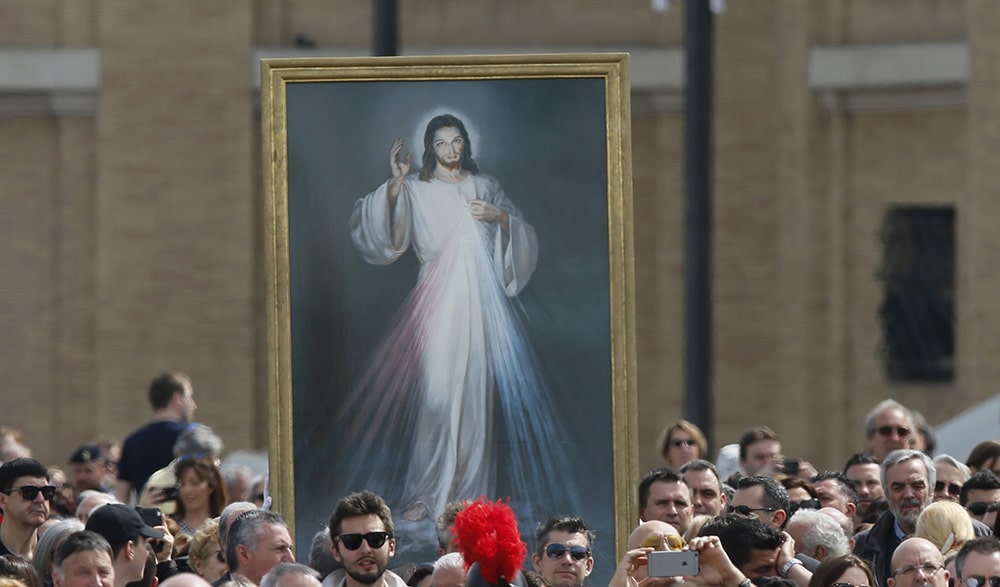 Question: The Bible mentions curses being passed down to future generations because of the sins of ancestors. In reading a Medjugorje message, the Virgin Mary said, “Ask of Jesus to heal your wounds, which you, dear children, during your life sustained because of your sins or the sins of your parents.” Does this not imply that generational curses are passed down to future generations because of the sins of ancestors? Please explain generational curses and suffering because of a relative’s sins.
Question: The Bible mentions curses being passed down to future generations because of the sins of ancestors. In reading a Medjugorje message, the Virgin Mary said, “Ask of Jesus to heal your wounds, which you, dear children, during your life sustained because of your sins or the sins of your parents.” Does this not imply that generational curses are passed down to future generations because of the sins of ancestors? Please explain generational curses and suffering because of a relative’s sins.
— Richard Mackin Jr., Millinocket, Maine
Answer: Generational curses are not formally taught by the Church, but neither are they denied. As you note, they are mentioned in the Bible, but also dismissed by other texts.
For example, the Prophet Jeremiah says: “In those days they shall no longer say, ‘The parents ate unripe grapes, and the children’s teeth are set on edge,’ but all shall die because of their own iniquity: only the teeth of those who eat unripe grapes shall be set on edge” (Jer 31:29-30). So the Lord would seem to cancel whatever generational curses descended through families.
Jesus also seems to reject this idea in John’s Gospel: “As he passed by he saw a man blind from birth. His disciples asked him, ‘Rabbi, who sinned, this man or his parents, that he was born blind?’ Jesus answered, ‘Neither he nor his parents sinned; it is so that the works of God might be made visible through him'” (Jn 9:1-3).
It is true, these texts deal primarily with punishments due to sin, not necessarily all maladies or tendencies. We all know by experience that certain tendencies, both behavioral and biological, do seem to pass down the generations, for better or worse; everything from height, weight and hair color to behavioral issues such as alcoholism, anger issues and so forth.
Exorcists and others in deliverance ministry tend to avoid theological debates and accept that, to some degree, generational curses are experienced and reported by many. Hence, there are prayers and minor exorcisms devoted to breaking the power of curses.
There are dangers, however, in placing too much focus on curses. First, it can shift personal responsibility for negative things away from the self to the demonic world or previous generations. Yet, often, negative things are due to personal decisions or omissions, psychological factors and habit patterns. A second danger is that many have a kind of superstitious fear of the power of curses more than they believe in the power of Jesus Christ to break them. An exorcist or priest may pray repeatedly for any curses or weapons waged against a person to be broken and made null, only to have the individual return repeatedly, claiming the curse is still operative. What are we dealing with here? Is it really a curse or is it a compulsive fear? Is it a lack of faith? Since blessings and exorcistic prayers are sacramentals (not sacraments), the role of faith and trust are essential. Hence, those who receive prayers to break curses must make many acts of faith and trust that the power of the curse has been broken and refuse to be any further intimidated or overwhelmed by doubts that the curse is still operative. Perhaps focusing on virtuous living and refusing to be mastered by sin is the better solution if prayers against curses are not having the desired effects.
As for your reference to Our Lady at Medjugorje, some caution is necessary here. In the first place, the apparition is not yet fully approved. One of the reasons for this is that some of the reported utterances are theologically imprecise. If your quote is accurate, it would seem it is at odds with the quote from John, listed above. While it could be true that Jesus is only denying that the particular man in question in John 9 was not suffering from his parents’ sin, it appears that the quote you list is too much at odds with the general path of Scriptures away from the notion that God punishes us for the sins of our parents.
If there are generational curses, we ought not easily presume them. There are surely generational tendencies that accrue to us, so prayers to break any and all generational curses are (and ought to be) offered in the Church. But we ought to presume that these prayers having been said have broken the power of such curses. The Lord and his blessing are more powerful than any curse.
Msgr. Charles Pope is the pastor of Holy Comforter-St. Cyprian in Washington, D.C., and writes for the Archdiocese of Washington, D.C. at blog.adw.org. Send questions to msgrpope@osv.com.







